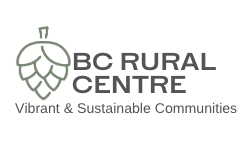
Real-Time Virtual Medical Support for Rural First Nations & Remote Communities — an Update
In an important update for rural healthcare providers and the rural First Nations & remote communities they serve from Dr. Ray Markham, Executive Director of the Rural Coordination Centre of British Columbia (RCCbc), it’s noted that The Collaborative Centre for Rural and First Nations Virtually Enhanced Care was established last year.
The Centre is jointly supported and led by First Nations Health Authority (FNHA), Providence Health Services Authority (PHSA), and the RCCbc. It is guided by a representatives from geographic Health Authorities, citizens, academia, rural healthcare providers, rural and First Nations British Columbians with significant NGO and business experience, and policy makers.
The Centre’s work has been focused around virtual care, while combatting the barriers posed by geography, distance, and weather to address health equity in BC. This forms an “Innovation Accelerator” within the Provincial Digital Health Strategy. All of the initiatives supported by the Centre are locally driven, and will be implemented in partnership.
“So where are we and what are we accelerating?” asks Dr. Markham in the update.
Virtual Care Platform Access
The Joint Standing Committee on Rural Issues (JSC) was established under the Rural Subsidiary Agreement in 2001. It is comprised of representatives from Doctors of BC, the Ministry of Health, and the health authorities. The JSC advises the BC government and Doctors of BC on matters pertaining to rural medical practice.
The JSC has supported the provisioning of a virtual care platform for every rural doctor and nurse practitioner serving rural, remote, and rural First Nations patients in BC. The choice of platform is driven by rural doctors as the best fit at this point in time. The preferred platform at this time is Zoom. Zoom was selected as a solution that can currently meet rural/remote/First Nations needs re. connecting with patients, enlarging the healthcare team wrapped around patients, and supporting ER services. Among other things this enables providers who may not be able to be physically present to help carry some of the clinical workload for their teams.
Accessing Zoom accounts for rural/remote/First Nations providers is available though the following link:
RUDi
RUDi provides in-time rural generalist ER support, enabled virtually. Think of it as a rural virtual urgent primary care centre, providing access to a physician who understands the rural context and supports the primary care and ER teams in rural communities. This may be of particular benefit to remote First Nations communities with no access to primary care physicians.
ROSe
Virtual intensivist support 24/7 to rural ERs.
Virtual Locum Service
This program offer sa more flexible approach to locum support, including linking locums with communities (preferably with a prior connection to the community).
Virtual First Call
In a clear reference to the impact the COVID-19 virus pandemic is and may have on rural/remote/First Nations BC, Dr. Markham says, “We clearly are in a marathon not a sprint; where needed we are looking at the option of supporting virtual first call for smaller communities where the critical mass of providers to support 24/7 service may become strained.”
For the update in its entirety, click here.
